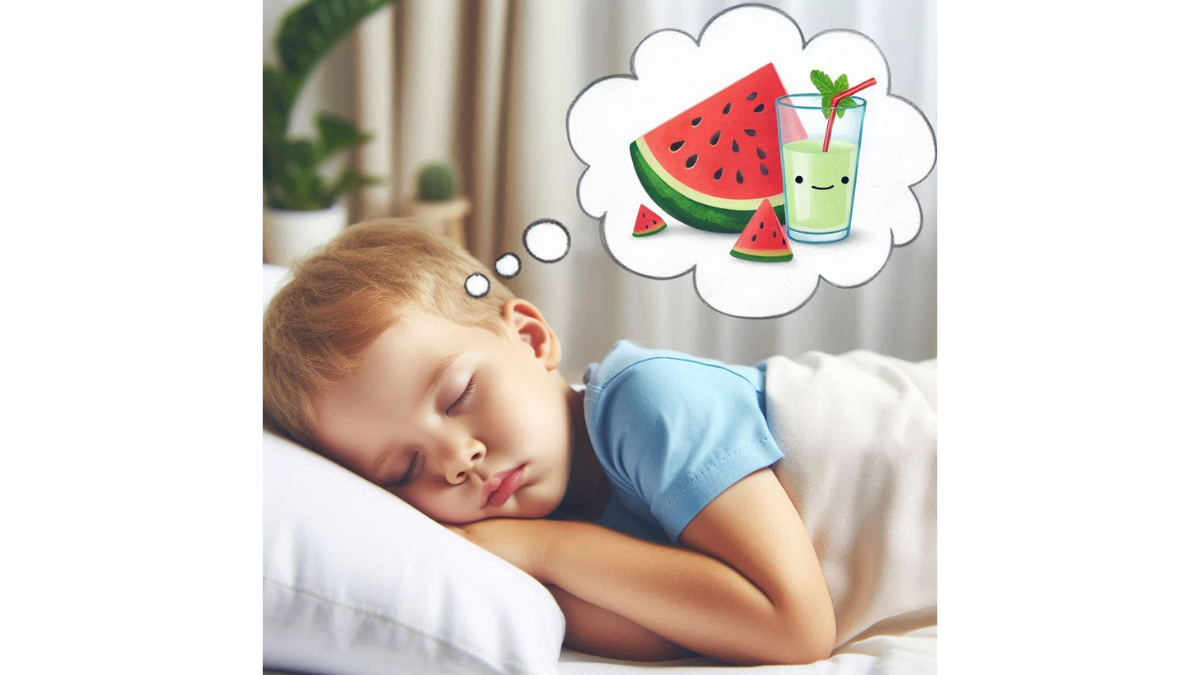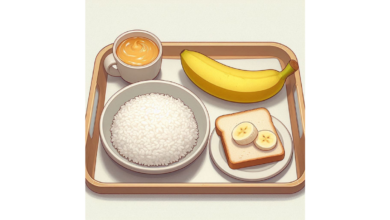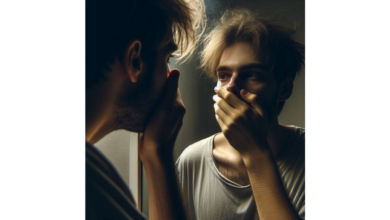What causes excessive saliva during sleep

What causes excessive saliva during sleep – Have you ever woken up to find your pillow dampened with saliva? If so, you are not alone. Excessive saliva during sleep, clinically known as sialorrhea, can be quite an uncomfortable experience for many individuals. While saliva plays a crucial role in our oral health, its overproduction, especially during sleep, can lead to various complications. Picture this: after a long day, you finally lay your head down for some much-needed rest. However, instead of drifting off peacefully, you are jolted awake, uncomfortable and embarrassed.
You might think to yourself, “What is causing this excessive saliva?” It’s more common than you might assume! Several factors contribute to this issue. During sleep, your body goes through various stages of rest, and salivary production can fluctuate. In a normal scenario, saliva works to moisturize the mouth, break down food, and reduce the risk of oral infections. When there’s an imbalance in the factors that regulate its flow, it can lead to excessive saliva accumulation. Common causes include:
- Medications: Many antidepressants and antipsychotics can affect saliva production.
- Medical conditions: Conditions like Parkinson’s disease or gastroesophageal reflux can play a role.
- Oral or throat issues: Allergies, sinus infection, or even dental issues can aggravate saliva production.
Understanding why this occurs is essential for managing the condition effectively and reclaiming restful sleep.
Importance of Addressing the Issue
Addressing excessive saliva during sleep is not merely about keeping your pillow dry; it significantly impacts your overall health and quality of life. Let’s break down the importance of rectifying this issue:
- Quality of Sleep:
- Uninterrupted sleep is crucial for overall health. When dealing with excessive saliva, you may find yourself waking up multiple times a night, resulting in poor sleep quality.
- Consistent disturbances can contribute to fatigue, reduced cognitive function, and mood swings during the day.
- Oral Health Risks:
- While saliva is beneficial for your oral health in normal amounts, excessive saliva can lead to dental problems. It might encourage the growth of bacteria or fungal infections.
- Individuals may experience bad breath due to the stagnation of saliva in the mouth, creating an environment for harmful bacteria to flourish.
- Social and Psychological Impact:
- Imagine sitting at a social gathering, only to feel self-conscious about drooling. This can affect your confidence and how you interact with others.
- It’s not just about the physical impact; the embarrassment of excessive saliva can lead to anxiety or stress. This can contribute to a vicious cycle, further deteriorating sleep and overall well-being.
- Underlying Health Issues:
- Sometimes, excessive saliva may be a symptom of a more serious health condition. Ignoring the problem could delay diagnosis and treatment of underlying ailments that may need immediate attention.
To illustrate, one of my friends dealt with excessive saliva during sleep for years. At first, he dismissed it as something trivial. However, as time went on, he began to feel embarrassed in social situations, attributing his discomfort to this uncontrollable issue. After seeking advice from a healthcare professional, he discovered that a simple adjustment in his medication could alleviate the symptom. This change not only improved his social life but also led to a remarkable enhancement in his sleep quality.
In summary, addressing excessive saliva during sleep is of utmost importance for both physical and emotional well-being. By understanding its implications, you can take necessary steps to manage this condition effectively. The next sections of this article will delve into the normal function of saliva, its potential causes when it becomes excessive, and practical strategies to manage it. You deserve restful nights and the confidence to face each day unburdened.
Normal Function of Saliva
Production and Role of Saliva
Now that we’ve discussed the implications of excessive saliva during sleep, let’s delve deeper into the normal function of saliva itself. Understanding how saliva is produced and its roles in your body can help clarify why imbalances can lead to issues like sialorrhea. Saliva is a clear, watery fluid produced by the salivary glands in your mouth. These glands are vital players in your oral health and are responsible for producing around 1 to 1.5 liters of saliva each day! Yes, it’s more than you’d expect. Here are some key functions of saliva:
- Digestion: Saliva contains enzymes such as amylase that begin the process of breaking down carbohydrates as soon as you take a bite of food. This initial digestion is crucial for nutrient absorption later in the digestive tract.
- Lubrication: Saliva moistens food, making it easier to chew and swallow. This function is essential for helping you enjoy meals without discomfort.
- Protection: Saliva serves as a barrier against harmful bacteria and pathogens. It contains antibodies that help combat infections and reduces the likelihood of tooth decay and gum disease.
- Taste: Saliva aids in the process of taste perception. It dissolves food particles, allowing taste buds to detect different flavors more effectively.
Personal anecdote: I remember my first experience with dry mouth while giving a speech. I noticed how difficult it was to articulate words when my mouth lacked moisture. This is a small yet powerful reminder of just how important saliva is for everyday communication and enjoyment of food. So, how does the body regulate saliva production? Your salivary glands — the parotid, submandibular, and sublingual glands — respond to various stimuli. When you see, smell, or even think about food, your brain signals these glands to produce saliva. In essence, your mouth is always anticipating action!
Factors Affecting Salivary Glands
Just like any other system in your body, the salivary glands are subject to various external and internal factors that can influence their function. Understanding these factors can provide insights into why someone might experience excessive saliva or dryness. Here are some key factors that can affect salivary production:
- Medications:
- Antidepressants: Many common antidepressants can lead to dry mouth, causing your body to produce less saliva overall. This may seem counterintuitive, but it’s a side effect often overlooked.
- Mouthwash: Alcohol-based mouthwashes can also dry out the mouth. While seeking freshness, you might inadvertently suppress saliva production.
- Hydration Levels:
- Dehydration is a significant factor in salivary production. When you don’t drink enough water, your body pulls back on saliva production to conserve fluids.
- Remember, your body is like a plant. If it’s lacking water, it’s going to wilt, and so will your salivary glands!
- Diet:
- Your diet can influence your salivary flow as well. Consuming spicy or sour foods can actually stimulate saliva production, leading to a temporary increase.
- Conversely, processed and sugary foods might lead to dryness and even contribute to cavities over time.
- Age:
- As with many bodily functions, age can play a role. Older adults may experience reduced salivary function, often resulting from medications or health issues.
- Health Conditions:
- Conditions such as diabetes, Sjögren’s syndrome, and autoimmune disorders often affect salivary glands, leading to either excessive saliva or dry mouth. If you notice significant changes in your salivary production, it may be worthwhile to speak with a healthcare professional.
Understanding these factors can help you make informed choices about your health. When you are aware of what influences your saliva production, you can take proactive steps to maintain a balanced environment for your oral health. In conclusion, saliva plays a multifaceted role in your daily life and overall well-being. By knowing how it’s produced and what factors can influence it, you position yourself to better understand the excessive saliva you may experience during sleep. As we proceed, we’ll examine common causes of excessive saliva and explore how you can maintain that crucial balance for better health. Remember, being proactive about your saliva production can lead to a more comfortable and fulfilling life!
Potential Causes of Excessive Saliva
Medications and Medical Conditions
Having explored the normal functions and influences of saliva, it’s now important to understand the potential causes of excessive saliva, which many of you might be curious about. A variety of factors can lead to increased salivation, with medications and underlying medical conditions being significant contributors. First, let’s look at medications. Various pharmaceuticals can have the side effect of stimulating salivary production. You may be thinking, “Why would a medication increase saliva?” The answer lies in how certain drugs interact with your body. Common medications contributing to excessive saliva include:
- Antipsychotics: Many antipsychotic medications have been linked to increased saliva production. If you or someone you know is taking these medications and experiencing excessive drooling, it’s worth discussing with a healthcare provider.
- Antidepressants: While antidepressants often lead to dry mouth as a side effect, some specific types, particularly those that increase serotonin levels, can do the opposite—resulting in excess saliva.
- Nausea Medications: Some drugs used to manage nausea, such as those prescribed for motion sickness or chemotherapy, can cause increased salivation.
Transitioning to medical conditions, a range of health issues can also induce excessive saliva. Conditions that affect the nervous system, digestive system, or oral cavity may lead to increased production. Notable medical conditions include:
- Parkinson’s Disease: This neurological disorder often affects the autonomic nervous system, which controls involuntary functions, potentially increasing saliva flow. Patients with Parkinson’s may also have difficulty swallowing, leading to pooling in the mouth.
- Gastroesophageal Reflux Disease (GERD): Those who experience GERD may produce excess saliva as a protective mechanism against acid reflux. The body may respond to angry stomach acid by flooding your mouth with saliva to neutralize it.
- Oral Infections: Infections or irritations in the mouth, such as periodontal disease or thrush, may stimulate salivary glands, resulting in excess saliva.
I recall meeting a friend who was prescribed medication for anxiety. While it helped alleviate his symptoms, he experienced an unexpected side effect—excess saliva— which caught him off guard. It was a shock at first, but upon talking to his doctor, they adjusted the dosage, and he found relief. This highlights the importance of monitoring how medications interact with your body.
Allergies and Sinus Issues
In addition to medications and medical conditions, allergies and sinus issues can also lead to excessive saliva production. You might be surprised at how interconnected your body is and how certain issues can manifest in ways you wouldn’t typically expect. Allergies can cause your body to react aggressively, producing excessive mucus as a defense mechanism. This overproduction can lead to excess saliva, particularly if you’re experiencing post-nasal drip among other symptoms. Here are some critical points regarding allergies:
- Pollen Allergies: Seasonal allergies can cause inflammation and increased mucus production in your sinuses, which may drip down the back of your throat while you sleep, triggering your salivary glands.
- Food Allergies: Some food reactions can lead to swelling in the oral cavity, causing your body to compensate by secreting more saliva.
Sinus issues, including infections or congestion, can similarly contribute to excessive salivation. When you have a congested nasal passage, breathing through your mouth becomes more common, which can cause dry mouth. As a response, your salivary glands may overcompensate, leading to drooling during sleep or discomfort when awake. Personal story: Last spring, I developed severe allergies to pollen. What I didn’t anticipate was how those allergies would affect me at night. I would frequently wake to find my mouth full of saliva. Curious, I explored remedies for sinus relief. After trying a saline nasal spray, I noticed my salivation improved significantly. This experience taught me how quickly addressing a small problem can lead to greater comfort.
To summarize, excessive saliva can arise from a multitude of factors, including medication side effects and medical conditions, as well as allergies and sinus-related issues. Identifying the underlying cause is crucial, as it opens the door to effective management strategies. In the following sections, we’ll address the impacts of excessive saliva on overall health and explore practical management and treatment options. Being informed of the possible causes is a vital first step in regaining control over your health and sleep.
Effects of Excessive Saliva
Disruption of Sleep Quality
Having explored the potential causes of excessive saliva, it’s now essential to discuss its effects, particularly on sleep quality and oral health. If you’ve found yourself waking up in the middle of the night, uncomfortable and aware of the excess saliva pooling in your mouth, you understand just how disruptive this can be. Let’s dive into how excessive saliva affects sleep quality.
- Frequent Awakenings:
- One of the most immediate consequences is the frequent disruptions during sleep. You may find that you wake up multiple times a night either because of discomfort or the need to reposition yourself to avoid saliva pooling.
- This interruption can prevent you from reaching the deeper, restorative stages of sleep, and you may wake up feeling tired and groggy even after several hours in bed.
- Increased Anxiety:
- The awareness of excessive saliva can create anxiety about drooling or feeling embarrassed in front of a partner or loved ones. This anxiety can add to your stress levels, making it even harder to fall asleep.
- It’s a concerning cycle; the more anxious you get about the issue, the more likely it is that you’ll find it difficult to sleep at all.
- Ineffective Sleep Solutions:
- If you resort to sleeping in certain positions to minimize saliva, you may unintentionally reduce airflow or comfort. For instance, sleeping on your side may seem like an ideal choice, but if it restricts your breathing, it can cause additional issues.
Personally, I once had a coworker who struggled with this very problem. He often described his nights as chaotic, filled with constant repositioning and wake-ups due to saliva. After discovering he wasn’t alone in this battle, he reached out for help. Seeking advice turned out to be a game changer for him, reminding me how important it is to address disturbances in our nightly routines. In conclusion, disruption of sleep quality due to excessive saliva can lead to significant physical and mental exhaustion. Addressing the condition is essential not just for comfort, but for an improved quality of life.
Impact on Oral Health
In addition to affecting sleep quality, excessive saliva can lead to several oral health concerns that shouldn’t be overlooked. While saliva is generally beneficial, excess amounts can create its own set of challenges. Here are some critical ways excessive saliva can impact oral health:
- Bacterial Growth:
- An abundance of saliva can create a warm and moist environment, which is perfect for bacteria to thrive. This can lead to the development of oral infections or exacerbate existing ones.
- If left unaddressed, those bacteria may contribute to bad breath, making social interactions distressing.
- Tooth Decay:
- While saliva helps to neutralize acids and promote oral hygiene, excessive amounts can lead to sediment buildup around the teeth that could contribute to decay.
- The result can be an increased risk of cavities, necessitating more frequent visits to the dentist for fillings and other treatments.
- Gum Disease:
- Saliva not only lubricates the mouth but is also vital for keeping gums healthy. An overproduction of saliva, on the other hand, may lead to gum inflammation or infection.
- Those with excessive salivation may notice their gums becoming more tender, red, or prone to bleeding, which are signs of potential gum disease.
- Denture Troubles:
- For those who wear dentures, excessive saliva can be particularly problematic. It may lead to discomfort or difficulty maintaining a proper fit, as the dentures could not adhere correctly to the moist environment within the mouth.
- Speech Issues:
- Excessive saliva can also affect your ability to speak clearly. If you are conscious of the saliva pooling, you might alter your speech pattern, leading to challenges in communication.
Reflecting on my experiences, I remember a relative who frequently sought treatment for gum issues. After numerous dentist visits, they discovered that the excess saliva was one of the contributing factors to their ongoing problems. A dental professional helped them develop a management plan, which significantly improved their oral health. In conclusion, excessive saliva can disrupt not only your sleep quality but also pose significant risks to oral health. Recognizing these effects is the first step toward finding solutions and regaining comfort in your daily life. As we move forward in the article, we’ll explore management and treatment options to help you better cope with this condition. Remember, each step you take in understanding and addressing excessive saliva brings you closer to improved well-being.
Management and Treatment Options
Home Remedies and Lifestyle Changes
Now that we have delved into the effects of excessive saliva, let’s turn our attention to management and treatment options that can help you tackle this condition effectively. Many individuals start with home remedies and lifestyle changes, which can be both accessible and impactful. Here are some practical steps you can take to reduce excessive saliva production:
- Stay Hydrated:
- It may sound counterintuitive, but staying well-hydrated is essential. Drinking enough water can prevent your body from overcompensating and producing excess saliva.
- Aim for about 8 glasses a day, more if you’re active or live in a hot climate.
- Avoid Trigger Foods:
- Certain foods can stimulate salivary glands. Spicy, acidic, or strongly flavored foods often encourage saliva production. Keeping a food diary can help you identify these triggers.
- Try opting for bland foods to see if it makes a difference.
- Practice Good Oral Hygiene:
- Maintaining an excellent oral hygiene routine can help manage excess saliva. Regular brushing and flossing can minimize the risk of cavities and infections, addressing potential causes of increased saliva.
- Consider using an antibacterial mouthwash to reduce bacterial buildup.
- Chewing Gum:
- Paradoxically, chewing sugar-free gum can help some individuals manage saliva production by promoting oral absorption and stimulating swallowing reflexes. Choose xylitol-sweetened options to benefit your oral health further.
- Adjust Sleep Position:
- Your sleeping position can play a role in how you experience excessive saliva. It may be helpful to sleep on your side or elevate your head with an extra pillow to reduce pooling.
I remember when I started adopting some of these changes. I made a conscious effort to stay hydrated while avoiding spicy foods. After a week, I noticed that my situation had improved significantly—not only did I feel more comfortable, but I also slept better at night! These lifestyle modifications can provide considerable relief for many individuals managing excessive saliva, but they may not be enough for everyone. Therefore, let’s explore medical interventions and professional advice for those who need a more robust solution.
Medical Interventions and Professional Advice
When home remedies don’t yield the desired results, it might be time to explore medical interventions and seek professional advice. A healthcare provider or dental specialist will be able to offer tailored solutions that suit your unique circumstances. Here are some medical approaches to consider:
- Consultation with a Specialist:
- Start by consulting your primary care physician or a dentist. They can help determine if your excess saliva is a side effect of medications or a symptom of an underlying condition.
- Based on their findings, they may refer you to an ENT (ear, nose, and throat) specialist or a neurologist for further evaluation.
- Medication Adjustments:
- If your excess saliva is linked to medications, a doctor may adjust your dosage or suggest alternative medications with less impact on saliva production.
- In some cases, medications such as atropine or glycopyrrolate may be prescribed to reduce salivary flow. Talk to your doctor about potential side effects and thorough assessments before considering these options.
- Botox Injections:
- In specific situations, Botox injections may be recommended to reduce salivation. The procedure involves injecting Botox into the salivary glands to temporarily block nerve signals and reduce saliva production.
- While it might sound surprising, many patients have found significant relief from excessive drooling through this method.
- Salivary Duct Procedures:
- For those with persistent issues, a specialized procedure may involve duct dilation or sialography to ensure the glands are functioning correctly. This intervention can help address structural issues or blockages affecting saliva production.
- Behavioral Techniques:
- Consider engaging in behavioral therapy or support groups if anxiety about excessive salivation is affecting your quality of life. Speaking with a professional can provide reassurance and helpful coping strategies.
Reflecting back, a close friend faced a similar struggle with excessive saliva. After trying lifestyle changes without much success, they consulted their doctor. They received valuable guidance, who ultimately recommended Botox injections. The results were transformational, allowing them to feel more confident and engaged in daily activities without anxiety over drooling. In conclusion, managing excessive saliva often requires a combination of home remedies, lifestyle changes, and possibly professional intervention. Exploring these options can lead you to greater comfort and peace of mind. A proactive approach ensures that you regain control over your situation, enjoy better sleep, and improve your overall well-being. Take small steps, seek out resources, and don’t hesitate to reach out for professional help if necessary. You’re not alone in this journey!
You might also find this article helpful Happy Healthy and Whole : The Power of Positive Habits






2 Comments